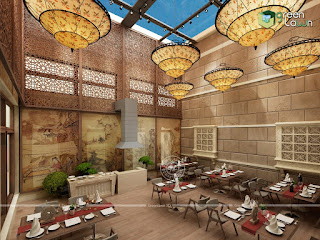What is Architectural 3D Flythrough Visualization?
Building design and construction is an expensive process.
Any change to layout or materials when construction is underway means extras
the industry wants clients to have an accurate vision of a home or building
before the first shovel hits the ground.
Architectural 3D Walkthrough is a
broad term that describes “seeing” architectural designs before they are built.
It encompasses everything from basic sketches to more sophisticated 3D
renderings and interactive virtual tours.
Builders, architects, real estate agents and interior
designers use architectural visualization to sell their products and services.
Images are better than words at securing sales, and they give the client a clearer
representation of what they’re buying.
2D Vs. 3D Architectural Visualization
Interactive 360˚ panoramas allow you view a space from every
angle as if you were standing there.
Basic sketches and flat floor plans used to be the most
common way for architects and builders to describe, market and sell their homes
and buildings, and they still have a place in the industry. But 2D drawings and
plans don’t always translate to buyers. It can be difficult to grasp how one
room flows into another or what the building looks in the context of its
surroundings.
Advancements in technology and computer graphics have
shifted the momentum toward 3D architectural visualization, which includes:
3D renderings, or computer-generated still images, that
offer a photo-quality view of the home, building or development. Images can be
used to show a building’s exterior, along with landscaping and nearby
buildings, or the interior. Often, these high-definition images are almost
indistinguishable from real photographs.
3D Virtual Tours that offer a 360-degree view of the project
and its surroundings. Created with high-tech simulation software, these take
clients around and inside the building. Virtual tours allow users to swap out
certain design features - crown molding or siding, for example - to play with
the look. Clients can find out how their home or building looks compared to
others around it.
3D architectural visualization benefits architects, builders
and clients. Design changes are easier and less expensive for the architect
than with hand drawings. Builders can avoid expensive mid-project changes. And
clients get a realistic image of the final product, allowing them to understand
and move forward with the project.
Visit – http://3d-architectural-walkthrough.com



Comments
Post a Comment